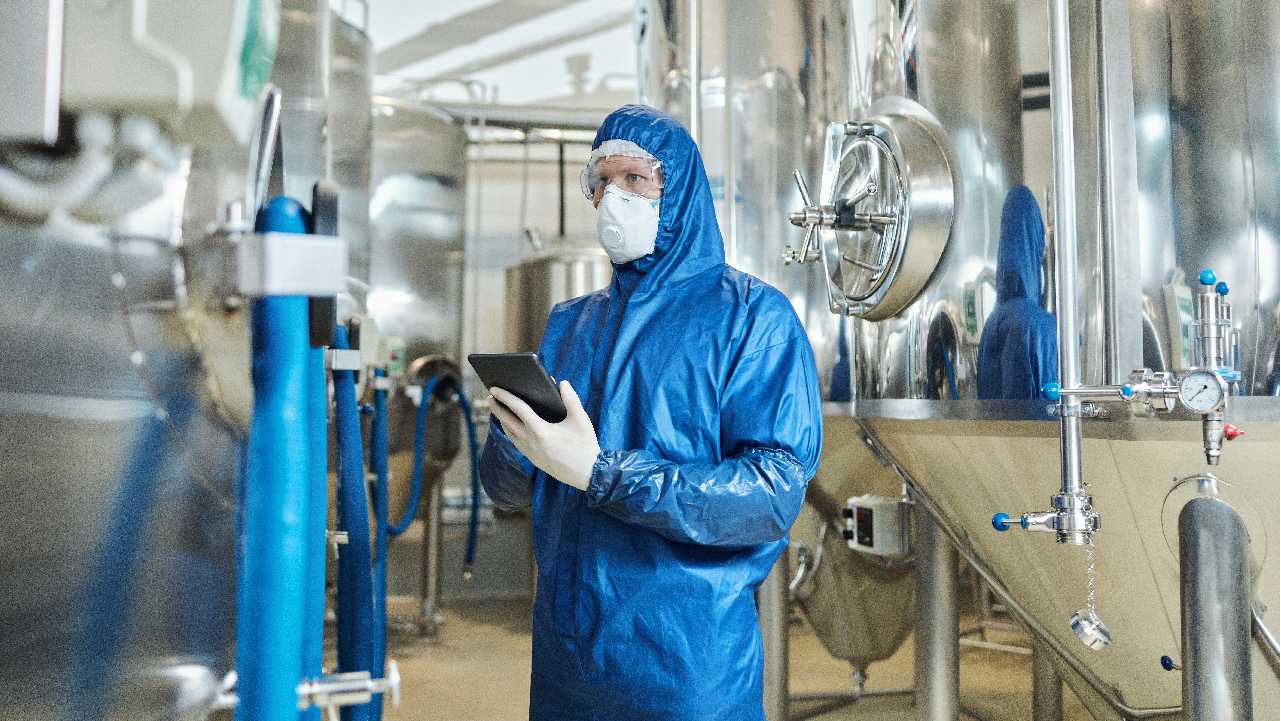
In the evolving pharmaceutical sector, selecting the right Contract Development and Manufacturing Organization is an important decision for the success of drug development projects. As the number of therapeutic molecules in development increases, the availability of numerous CDMOs presents both opportunities and challenges for pharmaceutical companies.
In this article, we will explore the essential criteria to consider when choosing a CDMO, to address the specific needs of your pharmaceutical company.
Understanding the Drug’s Development Stage
The drug development landscape presents both challenges and opportunities. With a failure rate of approximately 96%, the process is inherently risky. However, the increasing focus on specialized medications is evident, as orphan drugs—designed to treat rare diseases—comprised 44% of all new drug approvals.
In 2019 alone, there were 362,130 clinical trials conducted worldwide, reflecting the extensive efforts to innovate within the pharmaceutical industry. Additionally, about 70% of drugs currently in development are potential first-in-class medicines, showcasing a strong drive towards groundbreaking treatments.
Selecting the appropriate Contract Development and Manufacturing Organization plays a vital role in the success of drug development endeavors. The decision-making process revolves around several key factors, primarily based on the specific stage of drug development.
Here, we’ll learn about these stages and the criteria that should guide the selection of a suitable CDMO.
Discovery Phase:
At the start of drug development, during the discovery phase, the primary focus is on defining the targeted disease or condition and identifying the optimal biochemical mechanism for treatment.
It involves testing of drug candidates to assess their interaction with the intended ailment, leading to the identification of primary compounds. The selection of a CDMO at this stage must align with its capabilities in facilitating effective early-stage development processes.
Development Phase:
Advancing into the development phase, the emphasis shifts towards product characterization. This includes considerations such as the size and shape of the molecule, along with an analysis of its strengths and weaknesses concerning function, toxicity, bioactivity, and bioavailability.
Formulation, delivery methods, package development, and dosage determination become critical components of this stage. Additionally, factors like pharmacokinetics, preclinical toxicology testing, and Investigational New Drug (IND) application take precedence.
A good CDMO for this phase should demonstrate expertise in managing the complexities associated with these aspects.
Regulatory Review and Approval:
Following the development phase, the drug undergoes regulatory review and approval. This phase is integral to ensure compliance with safety, efficacy, and quality standards.
A reliable CDMO should possess robust data management protocols, streamlining the submission process and facilitating a smoother journey through regulatory assessments.
Importance of Selecting the Right CDMO for Pharmaceutical Companies
Selecting the right Contract Development and Manufacturing Organization is a critical decision for pharmaceutical companies. This choice can significantly influence the success of a drug’s development and commercialization, impacting everything from regulatory approval to market entry and competitiveness. Understanding the multifaceted importance of this selection process is crucial for pharmaceutical leaders.
Quality and Compliance
First and foremost, the right CDMO ensures that pharmaceutical products are developed and manufactured in accordance with the highest standards of quality and regulatory compliance. CDMOs are tasked with adhering to stringent regulations set by bodies like the U.S. Food and Drug Administration (FDA) and the European Medicines Agency (EMA).
These standards are designed to ensure that every product is safe for consumer use and effective in its intended use. A reputable CDMO not only understands these requirements but has integrated compliance into the core of their operations, thereby safeguarding the pharmaceutical company from legal and financial repercussions associated with non-compliance.
Expertise and Technological Capacity
The complexities involved in pharmaceutical manufacturing require specific expertise and advanced technological capabilities. The right CDMO brings a wealth of knowledge and experience that spans across drug formulation, process optimization, and scale-up activities. This expertise is vital for tackling the unique challenges presented by novel or complex drug products.
Moreover, CDMOs equipped with the latest technology can offer more efficient, cost-effective, and innovative solutions, which can significantly enhance the drug development process and its outcomes.
Speed to Market
In the competitive landscape of the pharmaceutical industry, speed to market is essential. Partnering with a competent CDMO can expedite the drug development process through streamlined workflows and efficient project management.
This expeditious journey from lab to market not only provides a competitive advantage but also benefits patients by providing quicker access to new treatments and therapies. Furthermore, the ability of a CDMO to navigate the regulatory landscape effectively can shorten the time required for regulatory approvals, further accelerating market entry.
Cost Efficiency
Outsourcing to a CDMO can also lead to significant cost savings for pharmaceutical companies. CDMOs provide a cost-effective alternative to investing in in-house manufacturing facilities and the associated operational and maintenance costs.
By leveraging the scale and expertise of a CDMO, companies can reduce costs related to labor, research and development, and capital expenditure. Moreover, the right CDMO can offer flexible pricing models that align with project needs and budget constraints, optimizing the financial aspect of drug development.
Risk Management
Partnering with a reliable CDMO also mitigates risks associated with drug development. This includes risks related to production, such as batch failures or inconsistencies, and regulatory risks involving non-compliance with global standards.
Experienced CDMOs have robust risk management strategies in place to anticipate, prevent, and swiftly address these challenges, thus ensuring a smoother and more predictable development process.
Key Criteria for CDMO Selection
Selecting the right Contract Development and Manufacturing Organization is crucial for pharmaceutical companies, as it affects the entire lifecycle of a drug product from development through commercialization. Below, we discuss the key criteria to consider when choosing a CDMO to ensure a successful partnership.
1. Expertise and Experience
A CDMO’s experience in the pharmaceutical sector is fundamental. Companies should look for a CDMO with a proven track record in their specific drug type or therapeutic area. Experience with regulatory submissions and a history of successful audits reflect a CDMO’s capability to navigate complex regulatory environments.
Additionally, CDMOs with specialized expertise in novel technologies, such as biologics or controlled release formulations, provide added value, especially for companies working with cutting-edge products.
2. Regulatory Compliance and Quality Assurance
Quality cannot be compromised in pharmaceutical manufacturing. The CDMO must comply with international regulatory standards such as FDA (U.S. Food and Drug Administration), EMA (European Medicines Agency), and ICH (International Council for Harmonisation of Technical Requirements for Pharmaceuticals for Human Use) guidelines. Look for CDMOs with current Good Manufacturing Practices (cGMP) certifications and a clear history of successful regulatory inspections. Effective quality management systems are essential to ensure that products are consistently produced and controlled according to quality standards.
3. Technological Capabilities
Technological capabilities are a critical criterion when selecting a CDMO, particularly for companies dealing with complex formulations or specialized products. Advanced technology in manufacturing and testing ensures that the CDMO can meet precise product specifications and regulatory requirements efficiently. This includes having state-of-the-art equipment for processes such as high-shear mixing, granulation, and coating, which are essential for maintaining quality and uniformity in products.
For oral dosage forms, which include tablets, capsules, and liquids, technological prowess is particularly crucial. These forms require precise control over dosage and release characteristics, which can be achieved through sophisticated techniques like fluid bed drying, spray drying, and extrusion. A CDMO with advanced capabilities in these areas can ensure better reproducibility and scalability, critical factors for the successful transition from clinical manufacturing to commercial batches.
Moreover, the importance of technology extends significantly when dealing with complex formulations, such as those requiring controlled or extended-release mechanisms. Innovative technologies like nano-milling for enhanced bioavailability or microfluidizers for liposomal delivery are transformative. A CDMO well-equipped with such technologies can provide pharmaceutical companies with a competitive edge, facilitating the development of novel therapies that meet specific therapeutic needs more effectively.
4. Capacity and Scalability
Scalability is a critical factor, especially for companies looking to grow. The CDMO should have the capacity not only to meet your current needs but also to scale up production as your product moves from clinical phases to commercialization.
This includes having adequate production lines and the ability to quickly adapt to increased production volumes or changes in manufacturing processes without compromising quality.
5. Financial Stability
The financial health of a CDMO can impact its ability to deliver services reliably over the long term. Financial stability ensures that the CDMO can invest in quality systems, advanced technologies, and skilled personnel.
Moreover, it reduces the risk of disruptions in product supply due to financial difficulties. A stable financial base is particularly important for long-term projects that require ongoing investment in manufacturing and development.
6. Project Management and Communication
Effective communication and robust project management are the backbones of any successful CDMO partnership. The CDMO should have clear communication channels and a project management structure that aligns with your company’s processes.
Transparent, regular communication on project statuses, issues, and changes is crucial to navigate the complexities of pharmaceutical development and manufacturing. Additionally, a collaborative approach can help in troubleshooting and optimizing processes throughout the lifecycle of the project.
7. Intellectual Property (IP) Security
Protecting intellectual property is paramount, especially in collaborations involving proprietary processes or formulations. The CDMO must demonstrate a strong commitment to IP security, with well-defined policies and procedures to protect sensitive information.
This includes employee confidentiality agreements, secure data management systems, and restricted access to proprietary information.
8. Flexibility and Adaptability
The ability to adapt to changes is essential in the dynamic pharmaceutical industry. Whether responding to changes in production requirements, regulatory updates, or project scopes, a flexible CDMO can significantly smooth the path to market.
This adaptability also extends to their willingness to customize services to fit unique product needs or to innovate alongside their client.
9. Cultural Fit
While often overlooked, cultural alignment between a pharmaceutical company and its CDMO can influence the effectiveness of the partnership. A CDMO whose values, business practices, and communication styles align with those of your company will likely result in a more productive and harmonious working relationship.
10. Location and Logistics
The geographical location of the CDMO can affect both logistical convenience and cost-effectiveness. Factors such as proximity to raw material suppliers, major markets, and transportation hubs can influence the overall efficiency of the supply chain. Additionally, consider the regulatory environment of the country in which the CDMO operates, as this can impact aspects like import/export restrictions and regulatory compliance.
Other Key Considerations for CDMO Selection
When selecting a CDMO, beyond the core criteria, there are additional considerations that can significantly influence the partnership’s success. These include environmental sustainability practices, the ability to handle high-volume production, and the specific expertise in secondary packaging, each of which plays a crucial role in aligning with long-term business goals.
Assessing the Range of Services Provided by a CDMO
The other criterion in CDMO selection pertains to the range of services offered by the organization.
Adhering to industry standards, a preference exists for utilizing the same CDMO for both development and commercial manufacturing. This approach offers advantages in terms of enhanced communication and improved timeline management. However, challenges related to capacity and flexibility may necessitate the contemplation of engagement with multiple vendors.
It is important to distinctly delineate which phases of the drug development process, including testing, approval, and manufacture, should be entrusted to a singular CDMO.
This necessitates an accurate examination of stages such as pre-formulation, formulation development, stability studies, method development, production of materials for clinical trials, and large-scale commercial production.
Transparency Regarding Costs in CDMO Selection
Understanding the costs is really important when choosing a Contract Development and Manufacturing Organization. It’s a bit like planning your spending for a project – having clear information helps to avoid money problems.
Working together with your procurement team is key. Create a simple list of questions for potential CDMO partners. Ask if the final costs include guessed expenses and planned costs.
Figuring out how much it will cost to develop a new drug can be tough. Things can change a lot in the early stages and during clinical trials. This is why having a CDMO with experience is so important. Ask them how they handle changes in the project, what they do if something doesn’t work early on, and how they share information about costs.
This plan, with details about potential expenses and how costs are structured, helps you avoid unexpected money challenges.
Speed and Quality of Development and Production in CDMO Selection
Another criterion for selecting a Contract Development and Manufacturing Organization centers around the speed and quality of development and production. This aspect is comparable to ensuring that your journey not only reaches the destination on time but also maintains the highest standards of quality throughout.
Initiate the evaluation by considering the availability and capacity of potential CDMO partners. It is crucial to inquire about their experience, capabilities, and current workload. Understanding potential bottlenecks, changeovers, and transfer times becomes paramount, particularly when engaging with multiple CDMOs.
In the context of drug development, experience holds significant weight. Opting for a CDMO with a proven track record of working with various molecules and pharmaceutical companies is beneficial.
Such a partner brings valuable insights to the table, capable of identifying potential issues during process development and scale-up. Their experience translates into practical solutions based on a wealth of knowledge.
Role of Communication and Technological Skill
Effective communication serves as a cornerstone for a successful partnership. Actively engage with the CDMO’s current clients, consultants, and colleagues to gain deeper insights into their working style, adherence to quality standards, and potential challenges they may have faced.
This peer-to-peer perspective offers invaluable information, empowering you to make an informed and discerning decision.
Technological capabilities and available facilities are critical considerations in the assessment of a CDMO. In instances where complex developments, such as injectables, are involved, the presence of a robust scientific and technical team becomes indispensable.
The utilization of design of experiments (DoE) techniques during the process design phase is notable. This approach effectively mitigates risks and ensures a seamless progression in the drug development journey.
Understanding the potential partner’s capacity and workload is similar to knowing how many passengers a vehicle can carry. In this context, it’s about knowing if the CDMO can handle the amount of work your project requires.
Inquiring about their experience is like asking the driver how many similar journeys they have successfully completed. A seasoned driver, or in this case, a CDMO, is more likely to navigate potential obstacles with ease.
Limitations of CDMO
While an integrated CDMO may simplify processes, practical considerations may limit its feasibility. Constraints during specific development stages and the need for flexibility might necessitate collaboration with multiple CDMOs.
It is crucial to note that involvement with more than one CDMO may entail additional expenses, including royalties associated with transitions between partners.
A fundamental component of this evaluation involves understanding the technological and scientific expertise required for your specific drug development.
It is imperative that the chosen CDMO possesses profound understanding and experience in the formulation technologies essential for the success of your project.
Final Note
Choosing the right CDMO is a strategic decision that can determine the success of a pharmaceutical product. It requires a comprehensive evaluation of multiple factors including expertise, quality assurance, technological capabilities, and more. By carefully assessing potential CDMOs against these criteria, pharmaceutical companies can establish a partnership that not only meets their current needs but also supports their long-term success in the competitive pharmaceutical marketplace.






